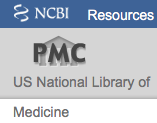Mahsa Miryan, Davood Soleimani, Leila Dehghani, Karim Sohrabi, Farzin Khorvash, Mohammad Bagherniya, Sayed Mazaher Sayedi, Gholamreza Askari
Abstract
Objectives: This study aims to assess the effect of propolis supplementation on clinical symptoms in patients with coronavirus (COVID-19).
Trial design: This is a Double-Blind, Placebo-Controlled, Parallel Arm, Randomized Phase ΙΙ Clinical Trial.
Participants: Patients with the confirmed COVID-19 based on the PCR test are eligible to participate in the trial if they are 18 to 75 years of age and have no history of the current use of warfarin or propolis supplement and presence of sensitivity to bee products. Patients will be recruited from the Al-Zahra hospital in Isfahan city, Isfahan, Iran.
Intervention and comparator: Participants (N=40) in the intervention group will receive an identical propolis tablet (containing 300 mg Iranian green propolis extract) three times a day for a period of 2 weeks. Participants (N=40) in the control group will receive an identical placebo tablet (containing 300 mg microcrystalline cellulose) three times a day for 2 weeks. All tablets are prepared by the Reyhan Naghsh Jahan Pharmaceutical Co., Isfahan, Iran.
Main outcomes: The main outcomes are changes in the coronavirus disease’s clinical symptoms including duration and severity from baseline to the end of 2 weeks.
Randomization: Eligible patients will be randomly allocated in a 1:1 ratio to the intervention or control group. Randomization will be performed on the basis of permuted block sizes of 4 and will be stratified according to sex categories. Randomization sequences will be prepared by the trial’s pharmacist with the use of random-number tables.
Blinding (masking): The trial-group assignment will be concealed from all participants, clinicians, and investigators throughout the trial. To ensure blinding, randomization sequences will be kept in identical, opaque, sealed, sequentially numbered envelopes. Only the trial’s pharmacist has access to the randomization list. Also, the placebo tablet will be similar to the propolis tablet in terms of texture, taste, color, odor, and weight. Both tablets will be provided in containers that are completely identical in weight, shape, labelling, and packaging.
Numbers to be randomized (sample size): The calculated total sample size is 80 patients, with 40 patients in each group.
Trial status: The protocol is Version 1.0, October 10, 2020. Recruitment began August 22, 2020, and is anticipated to be completed by March 21, 2021.
Trial registration: The name of the trial register: The effect of propolis supplementation on clinical symptoms in patients with coronavirus (COVID-19): A randomized, double-blind, placebo-controlled clinical trial. IRCT registration number: IRCT20200802048267N1 . Date of trial registration: 20 October 2020, retrospectively registered.
Full protocol: The full protocol is attached as an additional file, accessible from the Trials website (Additional file 1). In the interest of expediting the dissemination of this material, the familiar formatting has been eliminated; this Letter serves as a summary of the key elements of the full protocol.
* THESE STATEMENTS HAVE NOT BEEN EVALUATED BY THE FOOD AND DRUG ADMINISTRATION. THIS IS NOT INTENDED TO DIAGNOSE, TREAT CURE OR PREVENT ANY DISEASE.
